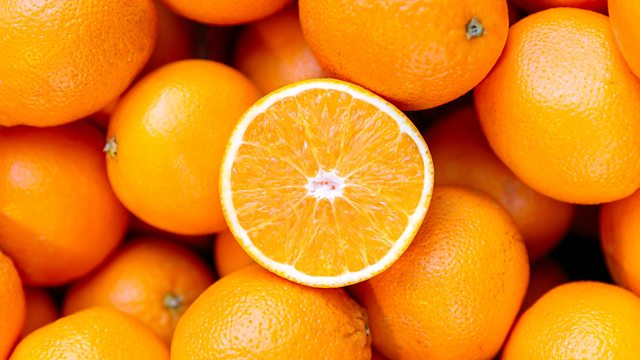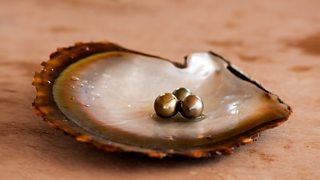The unstoppable orange
The brightly coloured tangy fruit traditionally associated with love, high social status and economic wealth that today means big business.
Oranges have long represented love, wealth and status - since they originated in South East Asia, around the 8th Century BCE. The orange tree's ability to carry fruit and blossom at the same time made it a symbol of fertility and purity in religious art and painting, and the intoxicating fragrance of the blossom, the perfect sphere of the mature fruit and its sensuously refreshing taste inspired writers and artists, as well as growers to produce ever more spectacular creations. With the advent of artificial refrigeration in the 19th Century, oranges then became big business and widely available to all. By the mid 1880’s it’s said more than 2.5 million cases of Italian citrus fruit arrived in New York every year. Today, while oranges are enjoyed by many, their production also has a bitter side – the sad plight of many of the orange pickers, and the impact of the orange juice industry affecting the diversity of orange trees and profit margins of the growers.
Joining Bridget Kendall is Cristina Mazzoni, professor of Romance Languages and Cultures at the University of Vermont, and the author of Golden Fruit: A Cultural History of Oranges in Italy; the food and travel writer Clarissa Hyman, who has written Oranges: A Global History; and Dr Alissa Hamilton, the author of Squeezed: What You Don’t Know About Orange Juice.
Producer: Anne Khazam
(Photo: Orange cross section on top of a pile of oranges. Credit: Alexander Spatari/Getty Images)
Last on
Broadcasts
- Thu 7 Jul 2022 23:06GMT91�ȱ� World Service
- Sun 10 Jul 2022 13:06GMT91�ȱ� World Service Online & News Internet only
Featured in...
![]()
Luxuries and obsessions—The Forum
How the world's desires were fuelled
Podcast
-
![]()
The Forum
The programme that explains the present by exploring the past



